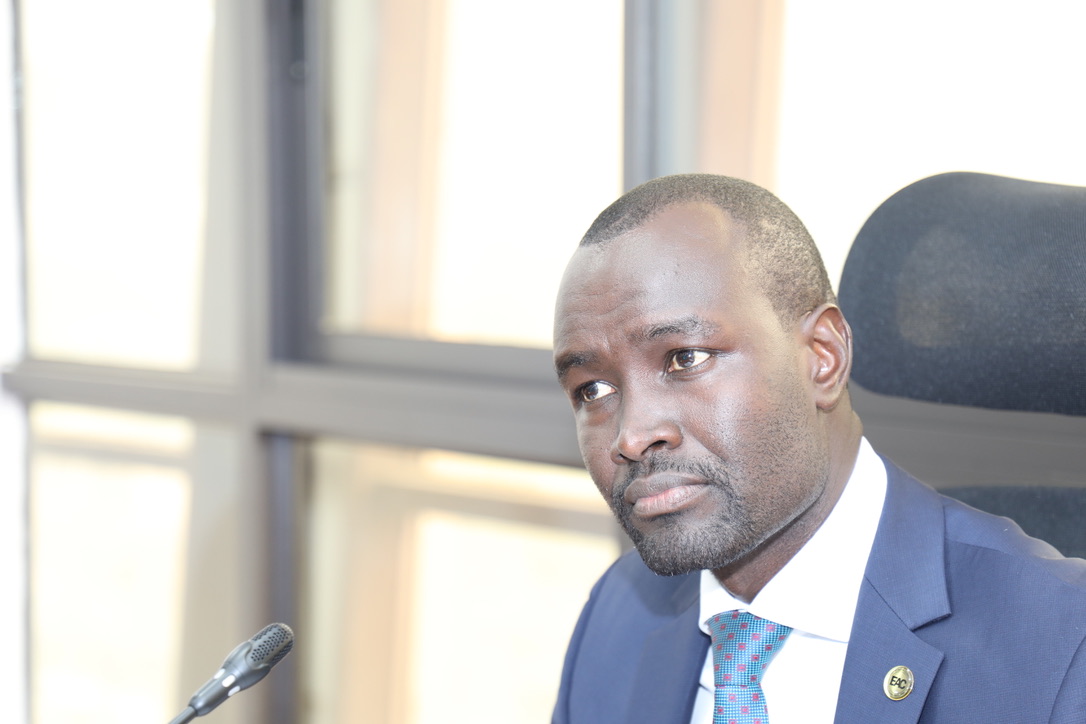𝐄𝐀𝐂𝐂 𝐀𝐃𝐃𝐑𝐄𝐒𝐒𝐄𝐒 𝐒𝐄𝐍𝐀𝐓𝐄 𝐂𝐎𝐌𝐌𝐈𝐓𝐓𝐄𝐄 𝐎𝐍 𝐂𝐎𝐑𝐑𝐔𝐏𝐓𝐈𝐎𝐍 𝐀𝐋𝐋𝐄𝐆𝐀𝐓𝐈𝐎𝐍𝐒 𝐈𝐍 𝐀𝐒𝐀𝐋 𝐂𝐎𝐔𝐍𝐓𝐈𝐄𝐒
Late this week, the Ethics and Anti-Corruption Commission (EACC), led by Chairperson Bishop David Oginde and Chief Executive Officer Twalib Mbarak, appeared before the Justice Legal Affairs and Human Rights Committee (JLAHRC). Their appearance was in response to a statement sought by Marsabit County Senator Mohamed Chute regarding the status of corruption inquiries in Arid and Semi-Arid lands (ASALs) Counties, specifically Wajir, Mandera, Marsabit, and Samburu.
Mr. Twalib Mbarak disclosed that the Commission had received and processed a total of 231 corruption and irregular procurement allegations, with a particular emphasis on ASALs. The breakdown of these cases included 87 in Samburu, 90 in Marsabit, 22 in Mandera, and 32 in Wajir.
A striking revelation emerged during Mr. Mbarak's presentation as he stated, "67 of these cases are at an advanced stage of investigation." Elaborating on their approach, he added, "Based on the Case Prioritization Strategy, which takes into account factors like significance, monetary value, and public interest, we have prioritized 67 high-impact cases. These cases have either been completed or are in various advanced stages of investigation."
However, Senator Fatuma Dullo raised a pertinent concern about the Commission's transparency and communication. She inquired about the mechanism in place to keep the public informed about the status of these investigations. "Do you have a mechanism for updating the members of the public on the status of inquiries and cases?" Senator Dullo asked.
In response, Bishop Oginde acknowledged the challenge. He pointed out that due to limited staff and the substantial number of cases reported, keeping the public regularly informed posed logistical difficulties. "Even if we wanted to provide regular updates," Bishop Oginde noted, "it would be practically impossible since we receive about 9,000 reports annually. To issue regular updates given such a large number of reports, we would need a dedicated department for this."
Unsatisfied with this response, the committee pressed further, urging the Commission to institute a mechanism through which the public could receive regular updates on the progress of these investigations.
Chaired by Senator Wakili Hillary Sigei, the meeting saw the participation of Senators Fatuma Dullo, Veronicah Maina, Catherine Muma, and Okiya Omtatah. Additionally, Senator Mohamed Chute was present as a friend of the Committee.
















